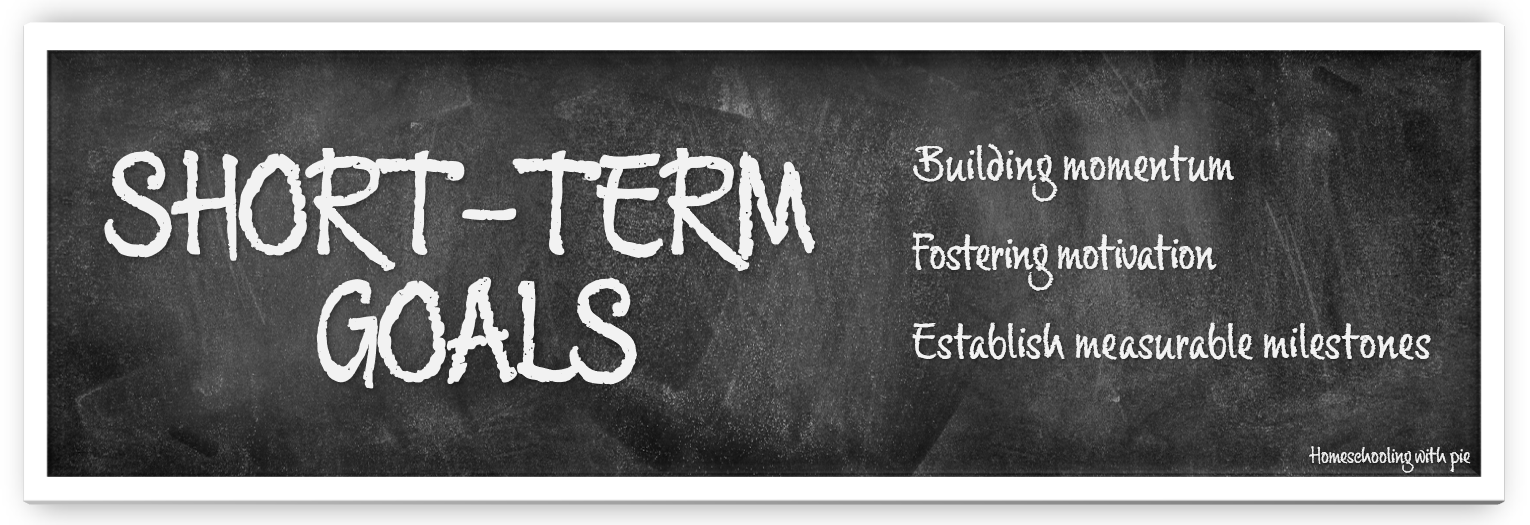LONG-TERM PLANNING: SHORT-TERM GOALS

Long-Term Planning: Short-Term Goals
Unlocking Success: The Power of Short-Term Goals
In the grand scheme of life, it's easy to become overwhelmed by the enormity of our dreams and long-term aspirations. The journey toward our most significant ambitions can appear daunting, leading many to feel lost or discouraged. This is where short-term goals come to the rescue. These small, specific, and time-bound targets play a pivotal role in helping us stay on track, maintain our motivation, and make steady progress toward our larger aspirations.
Short-term goals adhere to the SMART criteria: they are Specific, Measurable, Attainable, Relevant, and Time-based. These attributes ensure that they are well-defined, practical, and targeted to a certain time frame, making them an effective tool in personal and professional development. Let's delve into the importance of short-term goals and how they can shape your path to success.
Building Momentum
Short-term goals act as building blocks for your long-term ambitions. They break down overwhelming tasks into manageable pieces, allowing you to make incremental progress. When you achieve these smaller goals, you gain a sense of accomplishment that fuels your motivation and propels you forward. Each success becomes a stepping stone to the next, creating a momentum that drives you toward your ultimate objectives.
Fostering Motivation
Long-term goals can seem distant and intangible, making it challenging to stay motivated over extended periods. Short-term goals, on the other hand, provide a sense of immediacy. When you set achievable targets for yourself, the satisfaction of reaching them keeps you engaged and inspired. This consistent cycle of accomplishment acts as a powerful motivational force, making you more likely to stay committed to your overarching aspirations.
Mitigating Procrastination
Procrastination is a common roadblock on the journey to success. Large, nebulous goals can often lead to postponing tasks, thinking that there's ample time to complete them. Short-term goals are time-bound and, as such, create a sense of urgency. Knowing that you have a specific timeframe in which to achieve your goal can prevent procrastination and keep you focused on taking action in the present.
Establishing Measurable Milestones
Short-term goals offer a unique opportunity to measure your progress. By defining these smaller steps, you can track your advancement more effectively. This ability to gauge how far you've come helps you assess the effectiveness of your strategies and make adjustments as needed. It ensures you stay on the right track and maintain a sense of control over your journey.
Yielding Rapid Feedback
The feedback loop provided by short-term goals is invaluable. Achieving or falling short of these targets offers immediate information about your efforts. This feedback informs you of what's working and what needs improvement, allowing you to adapt and refine your approach quickly. It's much easier to make changes in response to short-term failures or successes than to overhaul a long-term plan that may have gone off course.
Short-Term Goals in Practice
Short-term goals can encompass various aspects of life, from personal development and health to career and financial objectives. Here are some practical examples of short-term goals:
- Health and Fitness: Run three times a week for a month, consume at least five servings of fruits and vegetables daily, or lose 5 pounds in two months.
- Career: Complete a professional development course within three months, achieve a specific sales target for the quarter, or network with five new industry professionals in a month.
- Personal Growth: Read one book per month, learn a new language in six months, or meditate for 10 minutes each day for a week.
- Financial: Save a certain amount of money each month, pay off a credit card within three months, or create a budget for the next six weeks.
These are just a few examples of how short-term goals can be tailored to your specific aspirations. The key is to create goals that are challenging but achievable, ensuring they align with your long-term vision.
In conclusion, short-term goals are a fundamental component of success. They provide focus, motivation, and a roadmap for personal and professional growth. By breaking down your larger objectives into smaller, manageable steps, you can make steady progress, stay motivated, and ultimately transform your dreams into reality. So, embrace the power of short-term goals, and watch how they pave the way for your journey to success.
Long-Term Planning: Short-Term Goals